
Healthy hearts
Is there a better way to share self-care information for patients with heart disease using technology? Caring Futures Institute researchers are co-designing digital innovations and engaging avatars to improve heart health.
Joe wears his heart on his sleeve. It wasn’t always this way, he says. Growing up he was reserved and private. He battled depression, mostly on his own, reluctant to reach out to those around him. Nowadays he is open about his fears and shares his aspirations for the future with fervour. A lot changed for Joe when, at just 38 years old, he had a heart attack.
“You’ve got to love life!” Joe will announce, sometimes more than once in a single conversation. His enthusiasm is palpable. In the hospital after his heart attack, Joe was also told he had developed heart failure. It is a serious and lifelong condition but he was determined it wouldn’t hold him back. And now he is channelling his energy into regaining his quality of life.
Some days are better than others, he explained. His rehab was recently derailed by a week in bed managing debilitating fatigue. “A lot of patients tell me ‘It’s really hard work being a heart failure patient’,” said Professor Robyn Clark, Flinders researcher and internationally-recognised heart health expert, “…and it is. There’s so much to think about from managing daily medication, finding ways to stay active and taking steps to keep your heart healthy.”
Finding innovative ways to help heart failure patients like Joe is why Robyn is expanding her research in the use of technology, avatars and self-care education apps. Joe met Robyn – and Bob and Mary the two new avatars – as part of a recent clinical trial. Heart attacks and heart failure can happen to anyone but more commonly affect people later in life. When Joe had a heart attack it took him by surprise and he found himself on the search for information. Since joining the trial and receiving the new Fluid Watchers app, featuring the Bob and Mary avatars, there hasn’t been a day Joe hasn’t taken this new information with him everywhere he goes.
Image above: Joe enjoying a vegetarian pizza at his favourite Italian restaurant in Adelaide.

Better design
“When I first opened the app, the avatar Mary came on the screen and said to me: ‘Hi, I’m Mary and I have heart failure’,” Joe said. He found her instantly relatable. His first interactions within the Fluid Watchers app were fun too he explained. You get to pick who you’d like to talk to, Bob or Mary, and then you can customise the avatar’s hair, clothes colours and glasses (it’s been suggested one pair are inspired by Robyn’s own signature red specs). The ability to customise the look of the avatars is a simple inclusion but is a feature that receives a lot of positive feedback from users, Robyn explained.
It was five years ago that Robyn began working with South Australian internationally awarded animation and design studio Monkeystack to create the first app and avatar Nurse Cora. Cora, who also features in the app, teaches people who have had a heart attack how to recognise and respond quickly to symptoms of a heart attack for subsequent attacks. This information would otherwise be shared with patients via a bedside explanation from a nurse and a Heart Foundation booklet. Surprisingly, people who have had a heart attack are no more likely to recognise the symptoms the second time around. And so Robyn was motivated to look at innovative new ways to increase patient’s awareness of heart attack symptoms.
Robyn and Monkeystack worked on new ways to deliver patient education and the developers used CGI technology to craft Cora’s lifelike mannerisms. Every part of Cora was carefully considered down to each word-perfect sentence using evidence-based guidelines. Nurses reviewed original versions of Cora and told Robyn that she needed to be a healthy size 12 and her hair shouldn’t be perfect to make her more like a real-world nurse.
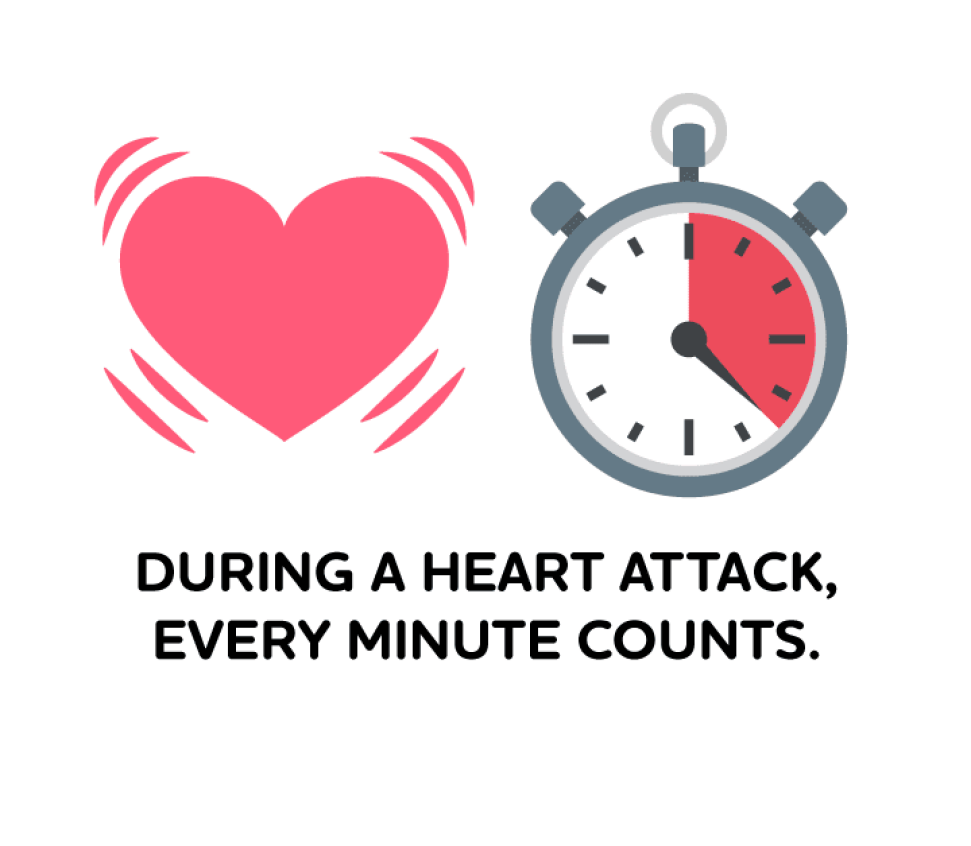
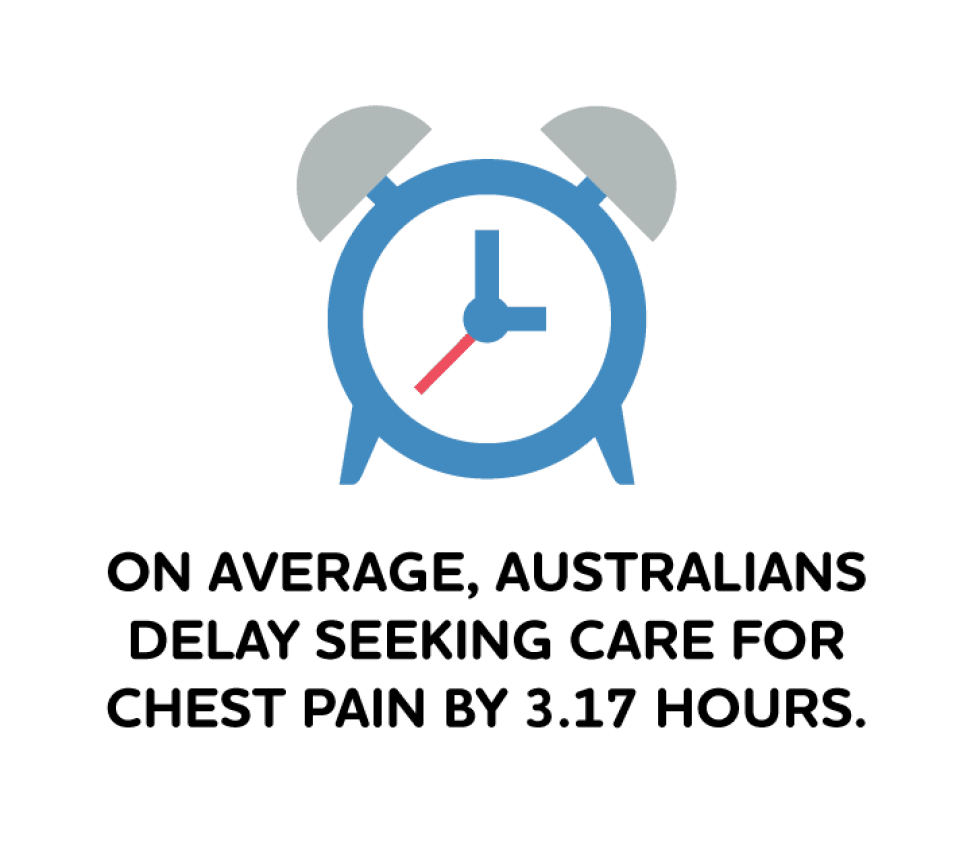
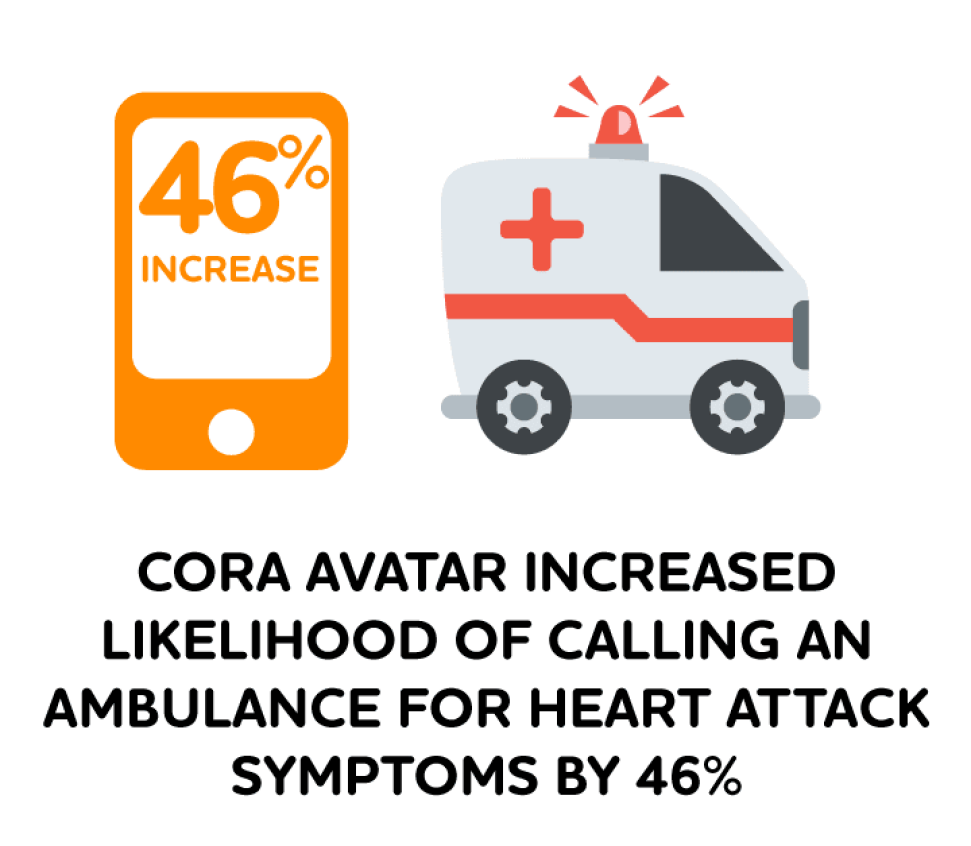
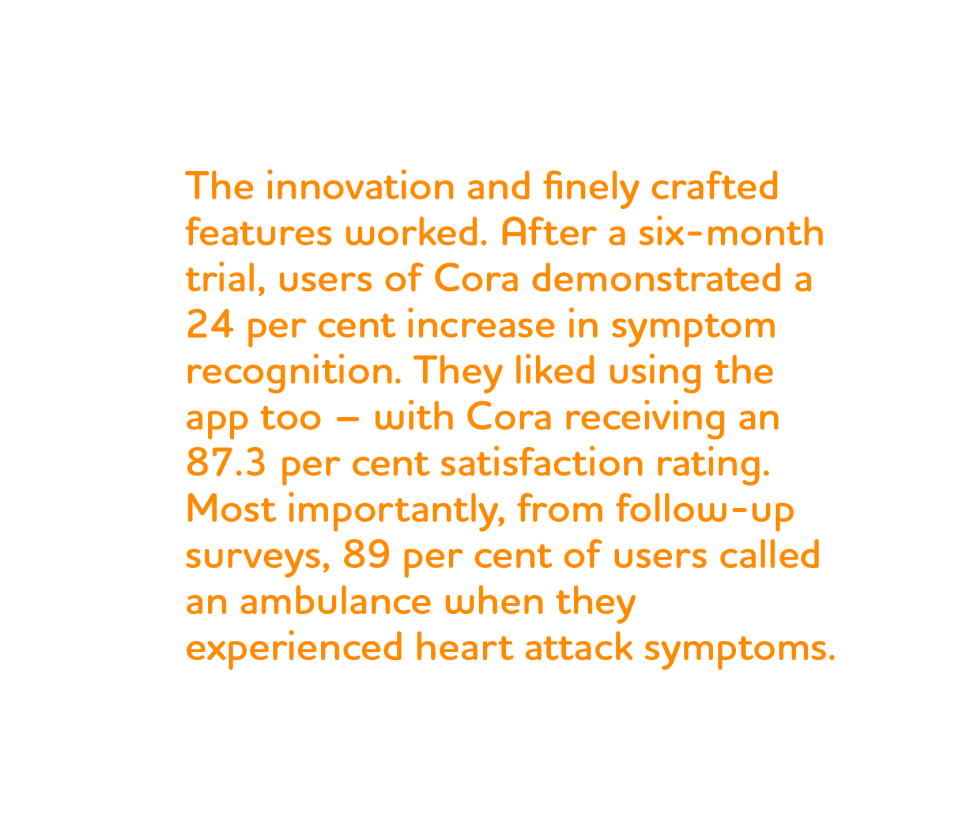
Better days
Heart disease is one of Australia’s most serious health issues. More than 620,000 people are living with heart disease and it is Australia’s single leading cause of death. Heart failure requires daily management, for instance, there’s seven, eight or nine tablets to take each day. Avatar Mary has a few suggestions for making this easier, like setting a time each day to take the tablets and making it a part of a daily routine.
Limiting and monitoring salt intake is also a new way of living for people with heart failure. Heart failure causes the heart to have difficulty pumping blood around the body which can cause fluid to build up. It’s one of the lessons Joe took from the app – weighing yourself each morning to check for any sudden influxes of fluid which can put a patient’s heart under serious strain.
In addition to the research-backed information Bob and Mary share in the app, a lot of work has been done in making the app something people want to engage with. The more people engage with Bob or Mary, the more they learn. Bob and Mary have a lot of tips for living with and managing heart disease – at the core of the app is sharing research-backed knowledge to make daily life easier for heart disease patients.
Better future
Joe would like everyone with heart failure to have access to Bob or Mary and the Fluid Watchers app. He doesn’t believe he would have the same level of knowledge or steps to manage his heart failure without it. “I went from feeling like I had no information about what was happening to me to having answers right here in my bag with me everywhere I go,” Joe explained.
Robyn wants to see it be available to as many people as possible too and is working on additional features like translating Nurse Cora, Bob and Mary into 144 languages. Robyn is working with the Heart Foundation to release the apps in the next year and reach more Australians and help prevent avoidable deaths.
Reduce your risk:
Be active
Check high blood pressure
Quit smoking
Limit alcohol
Lower stress
More vegetables
Healthy weight
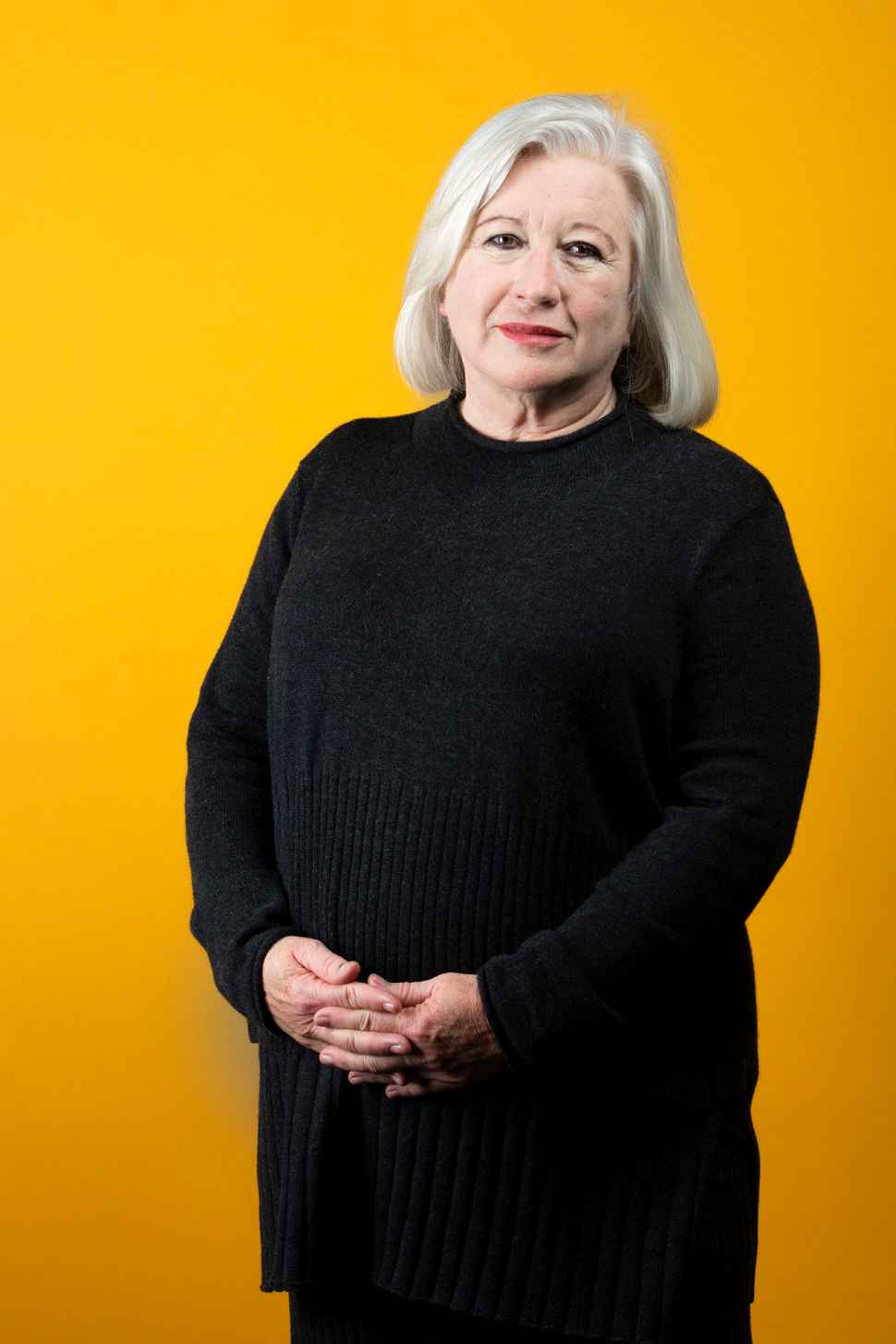
Robyn is an internationally recognised senior clinician and researcher. She is a qualified registered nurse and critical care nurse with a master’s degree in education and PhD. She is the lead for the Caring Future’s Institute Better Care theme. Robyn’s research is focused on heart health with an interest in increasing access to services for heart failure and heart disease patients especially in rural and remote Australia, technology in health delivery and prevention and services for cardiotoxicity after cancer treatment. Her research has contributed to the interactive Fluid Watchers app, which has helped improve Australian’s awareness and action for heart attack symptoms.

![]()
Sturt Rd, Bedford Park
South Australia 5042
South Australia | Northern Territory
Global | Online


